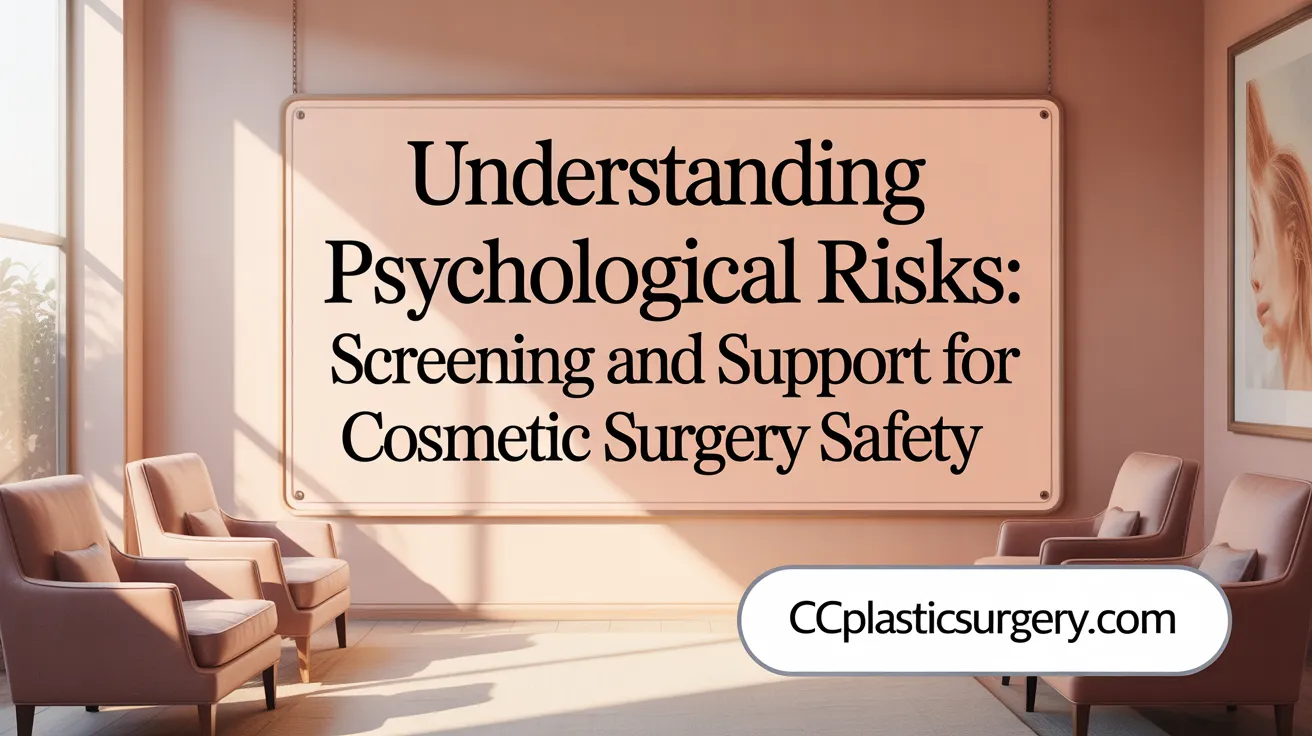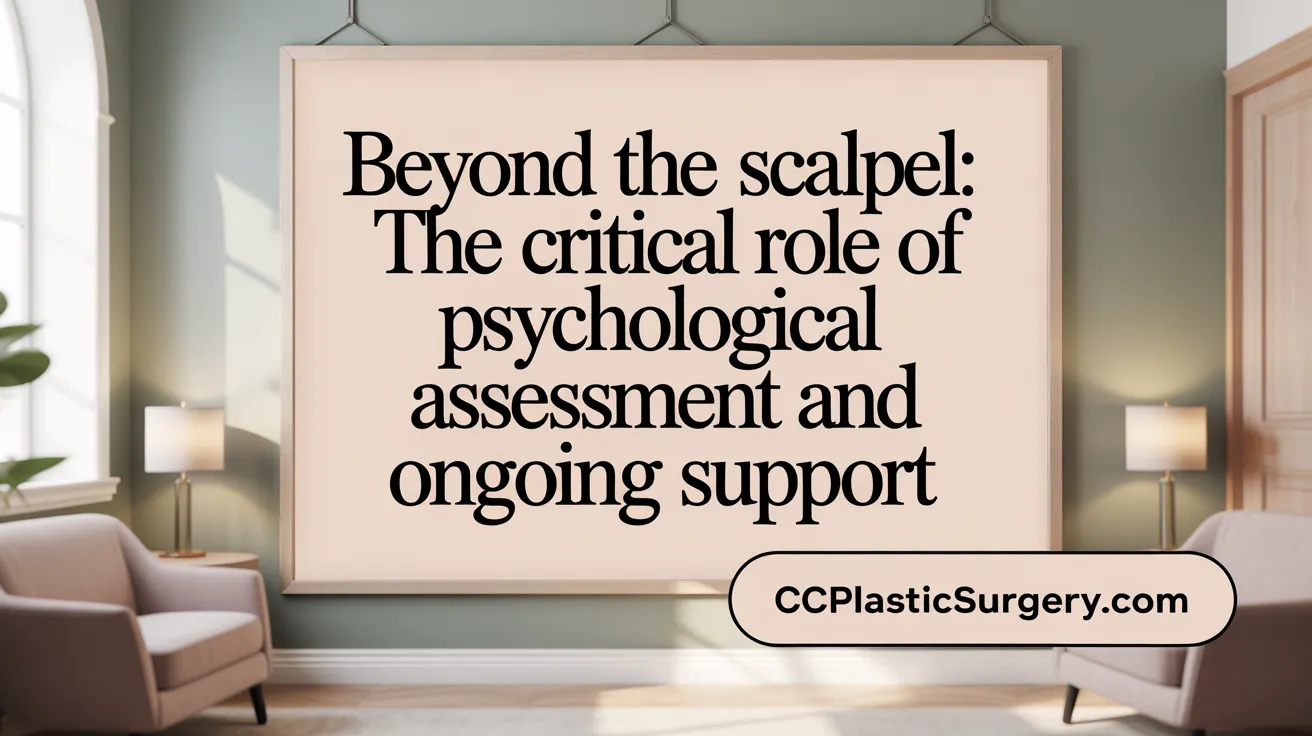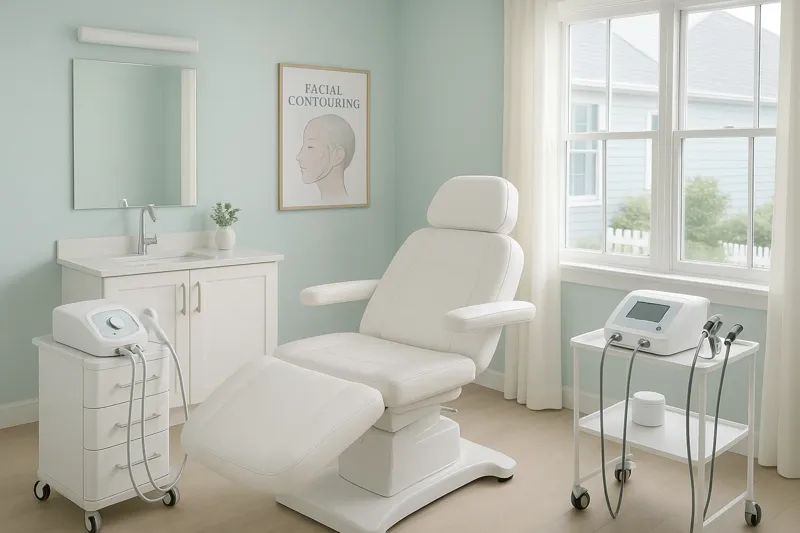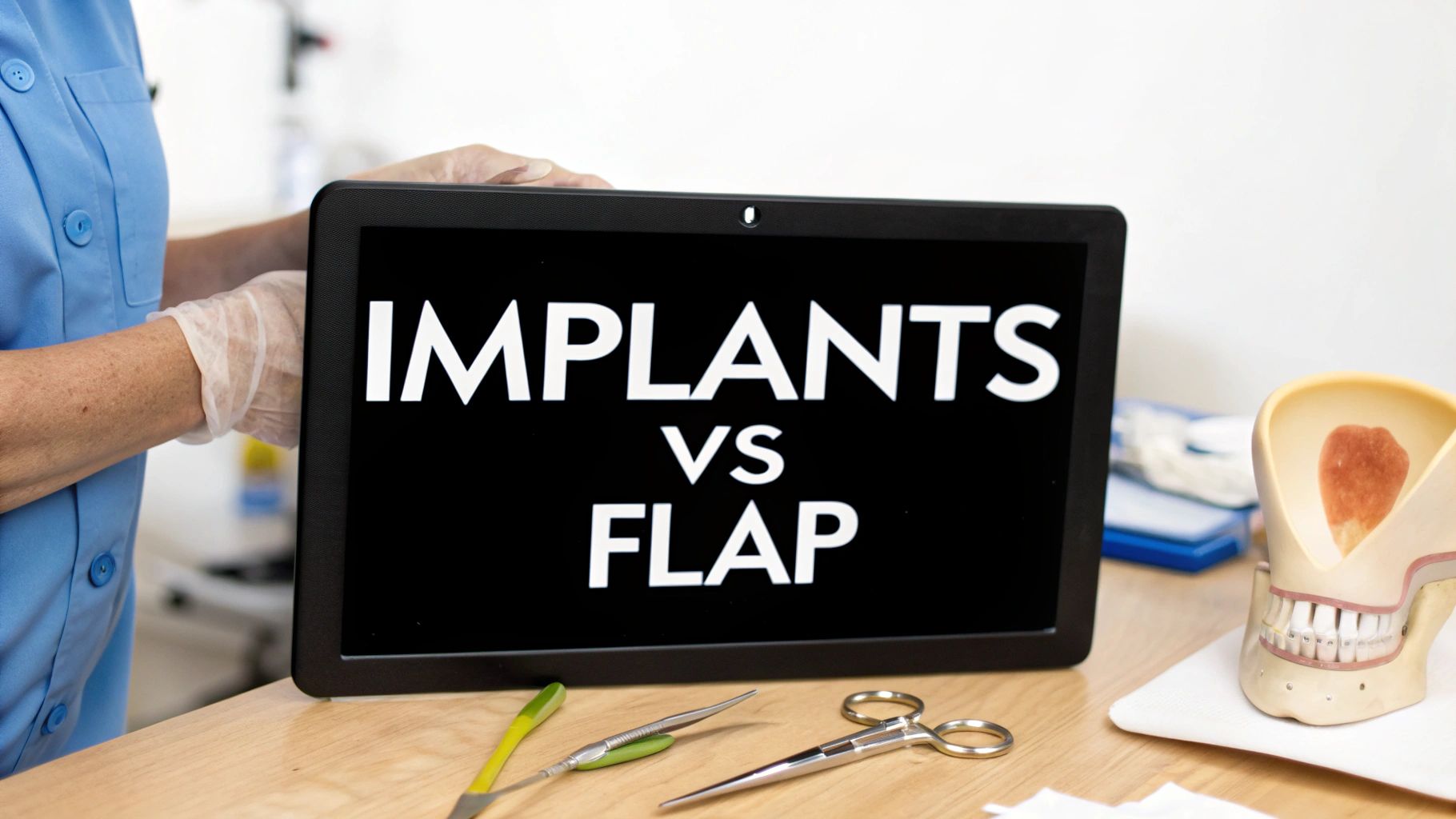
February 9, 2026
How to Get Rid of Smile Lines for Smoother, Youthful Skin
Discover how to get rid of smile lines with our expert guide. We explore proven skincare, powerful injectables like fillers, and advanced treatment options.
Sep 11, 2025

Cosmetic surgery is often viewed superficially as a means to enhance physical appearance. However, its psychological underpinnings reveal a far more intricate narrative involving body image, identity, social pressures, and mental health. This article delves into the psychological motivations behind cosmetic surgery, its effects and risks, and the broader societal factors at play, highlighting how these procedures influence and reflect more than just looks.
The reasons individuals choose to undergo cosmetic procedures extend well beyond superficial concerns. Many are driven by a strong desire to address dissatisfaction with their body image, aiming to improve their appearance to boost self-esteem, confidence, and overall happiness. This dissatisfaction often stems from societal and cultural standards that idealize certain aesthetic features.
Research shows that body image is a multifaceted construct involving perceptual, attitudinal, and behavioral components. These components are influenced by external factors such as media images, advertising, and social media platforms that amplify narrow beauty ideals. When individuals internalize these standards, they may develop negative feelings about their appearance, motivating them to seek surgical correction.
Many patients report that their decision is influenced by the importance and value they assign to their body image. The more significant and distressing their dissatisfaction, the higher the likelihood they will pursue surgery in hopes of attaining a more fulfilling self-image.
While some seek cosmetic procedures for reasons related to identity and self-perception, others are motivated by emotional needs or societal pressures. For example, societal stereotypes linking beauty with social acceptance and success can reinforce the desire for aesthetic enhancement. Personal factors, including age, gender, religiosity, and perceptions of self-worth, also shape these motivations.
Though most individuals do not have serious mental health issues, a notable subset of cosmetic surgery patients exhibit psychological concerns such as body dysmorphic disorder (BDD), anxiety, or depression. However, research indicates that most patients presenting for elective procedures do not suffer from severe psychopathology. Still, psychological assessments, including standardized measures like the MMPI, are essential for screening.
In summary, the pursuit of cosmetic surgery often results from a complex mix of psychological, social, and cultural influences. Many individuals desire to reshape or disown parts of their identity, seeking a form of control or a way to meet societal expectations. Understanding these motivations helps practitioners guide their patients effectively, ensuring that surgeries serve as a positive step towards improved well-being rather than a response to external pressures or deep-seated psychological issues.
Body image plays a pivotal role in determining the psychological and emotional results of cosmetic procedures. It is a complex, multidimensional concept that includes perceptual, attitudinal, and behavioral aspects. When individuals pursue cosmetic surgery, their perceptions of their appearance, their satisfaction with their bodies, and their societal comparisons all influence how successful the surgery feels psychologically.
Research shows that those with a positive and realistic body image are more likely to experience an improved self-esteem and genuine satisfaction after surgery. These individuals often view the results as a reflection of their personal goals and feel more confident in their appearance.
Conversely, people with persistent body dissatisfaction or conditions like body dysmorphic disorder (BDD) often face ongoing dissatisfaction, even if the surgical outcome is objectively successful. For them, cosmetic surgery may not resolve underlying issues and could potentially exacerbate feelings of insecurity or obsession with their appearance.
Age and gender are also influential factors. Younger women, especially those with poor body images, tend to experience higher levels of preoperative emotional distress. This suggests that psychological factors must be carefully evaluated prior to surgery to prevent postoperative dissatisfaction.
Cultural influences and societal beauty standards further shape perceptions of body image. In societies that emphasize thinness, youthfulness, or specific aesthetic ideals, individuals may experience greater pressure to conform through surgery.
To optimize outcomes, comprehensive preoperative assessments are essential. Using validated tools like the Multidimensional Body-Self Relations Questionnaire can help uncover underlying body image issues. Psychosocial support and realistic expectation management can considerably enhance satisfaction rates and overall psychological wellbeing.
In summary, addressing body image concerns before surgery not only improves the likelihood of satisfying physical results but also fosters positive psychological adjustment and long-term happiness.
Cosmetic procedures often provide significant positive impacts on a person's mental health and emotional state. Many individuals experience improved body image and greater self-esteem following surgery or non-surgical treatments. This boost in confidence can translate into better social interactions, improved professional opportunities, and a more positive outlook on life.
Patients frequently report feeling less anxious or depressed about their appearance after procedures like liposuction, rhinoplasty, or breast augmentation. For some, these changes help reduce feelings of social anxiety and increase overall social confidence.
However, the psychological benefits are influenced by several factors. Preoperative mental health status, setting realistic expectations, and the absence of underlying psychological conditions such as body dysmorphic disorder (BDD) play crucial roles. When expectations are aligned with achievable outcomes, patients are more likely to experience satisfaction and lasting psychological improvements.
While evidence suggests that many individuals experience reductions in anxiety and depressive symptoms after cosmetic surgery, results are not universal. For some, especially those with pre-existing mental health issues or unrealistic goals, surgery may not lead to the expected emotional relief and could, in some cases, exacerbate feelings of dissatisfaction.
Therefore, comprehensive consultations and psychological assessments are vital before proceeding with cosmetic procedures. Engaging with qualified mental health professionals helps ensure that patients have realistic expectations, understand potential outcomes, and are psychologically prepared for the changes.
Overall, when approached thoughtfully, cosmetic surgery can serve as a tool for enhancing mental well-being by increasing confidence and promoting a positive self-image, ultimately contributing to a better quality of life.
Patients seeking cosmetic surgery often experience a complex interplay of psychological factors before and after their procedures. Preoperatively, individuals may confront issues such as pre-existing mood disorders—including depression and anxiety—as well as body dysmorphic disorder (BDD), which can distort their perception of their appearance. Unrealistic expectations about surgical outcomes and dissatisfaction with body image are common challenges that influence their decision to proceed with surgery.
These psychological predispositions can significantly impact post-operative mental health. Studies indicate that patients with untreated or unrecognized mood disorders face a higher risk of adverse outcomes, such as increased depression or social withdrawal after surgery. For some, they might experience difficulty adjusting to their new appearance, especially if the results do not meet their distorted expectations.
Postoperative psychological factors include coping with the physical and emotional changes resulting from surgery. Recovery stress, potential complications, and unmet expectations can contribute to feelings of dissatisfaction or regret. Additionally, patients with prior psychological vulnerabilities may see their conditions worsen, leading to feelings of anxiety, depression, or social isolation.
Research suggests that patients who are thoroughly screened with validated psychological tools and receive appropriate mental health support tend to enjoy better outcomes. These measures help identify high-risk individuals, particularly those with BDD or severe mood disorders, who may not benefit from surgical intervention and might require psychological treatment first.
While many studies report overall positive psychological improvements, especially when expectations are managed well, the long-term psychological impact remains uncertain. Some individuals continue to face mental health challenges years after their procedures, including persistent dissatisfaction or new psychological symptoms.
In summary, addressing psychological health through comprehensive assessments and ongoing support is essential in the cosmetic surgery process. This approach helps optimize satisfaction, reduce risks of psychological distress, and promote overall well-being long-term.

Cosmetic surgery can significantly impact an individual’s mental and emotional health. One of the primary concerns is the presence of body dysmorphic disorder (BDD), a mental health condition where individuals have an obsessive focus on perceived flaws in their appearance. Patients with BDD often do not find relief through surgery and may experience worsening symptoms post-operatively.
Depression and anxiety are also common risk factors among patients seeking cosmetic procedures. Pre-existing mood disorders can predispose individuals to postoperative depression or increased anxiety, especially if outcomes do not meet their expectations or if complications arise.
A notable concern is the increased risk of suicidal ideation and behavior, particularly among women who have undergone breast augmentation. Studies indicate that those with pre-existing mental health issues are more vulnerable to adverse outcomes after surgery.
The influence of media and societal pressures cannot be underestimated. Society’s promotion of unattainable beauty standards, amplified by social media, often fuels dissatisfaction with body image and can lead to a cycle of repeated procedures.
To address these risks, psychological screening before surgery is critical. Using validated tools such as the Body Dysmorphic Disorder Examination and the PHQ-9 for depression can help identify vulnerable patients. Such assessments enable professionals to provide appropriate counseling, set realistic expectations, and determine whether surgery is advisable.
Informed consent should include thorough discussions about potential psychological effects, emphasizing that surgery may not resolve underlying self-esteem issues or psychological distress. A multidisciplinary approach involving surgeons, psychologists, and psychiatrists increases the likelihood of positive outcomes and minimizes the risk of long-term dissatisfaction or mental health deterioration.
Several frameworks help us understand why individuals seek cosmetic surgery and how it affects their mental health.
One prominent model is the biopsychosocial approach. This model considers the complex interaction of biological factors such as genetics, psychological influences like self-esteem or body image, and social elements including societal standards and media exposure. It emphasizes that motivations for cosmetic procedures are rarely driven by one factor alone but by an interplay of multiple influences.
The body image theory provides insight into how individuals perceive and feel about their bodies. It describes body image as a multidimensional construct involving perceptual, attitudinal, and behavioral components. For example, dissatisfaction with one’s appearance—often influenced by media portrayals and cultural ideals—can lead to the desire for cosmetic enhancements.
The tripartite influence model rests on the idea that media, peers, and family exert pressure that shapes one’s body ideals and dissatisfaction. It explains how societal standards are internalized, leading to behaviors like cosmetic surgery to align with perceived beauty norms.
Additionally, body objectification theory plays a role in understanding how societal and media influences can lead individuals to view themselves primarily as objects to be looked at and evaluated. This perspective can increase body dissatisfaction and motivate cosmetic procedures as a means to attain societal approval.
Personality traits such as perfectionism and appearance-based rejection sensitivity also contribute to understanding the psychological profiles of patients. Those with perfectionistic tendencies may pursue cosmetic surgery to achieve flawlessness, while rejection sensitivity can heighten concerns about appearance and social acceptance.
Furthermore, the body dysmorphic disorder (BDD) framework is critical for identifying individuals whose psychological distress is rooted in an obsessive preoccupation with perceived flaws. Assessing for BDD is crucial, as surgery often does not alleviate these underlying issues and may even worsen them.
In summary, these models collectively reveal that the decision and psychological outcomes related to cosmetic surgery are shaped by a combination of personal, social, and cultural influences. Understanding these frameworks aids clinicians in evaluating patients' motivations and potential risks, ultimately guiding more tailored and effective care.
Societal beauty standards heavily impact individuals' decisions to pursue cosmetic procedures. These standards, often rooted in cultural ideals, dictate what is considered attractive in a particular society or community. For example, media portrayals, celebrity influences, and advertising create a narrow, often unattainable image of beauty that many aspire to resemble.
These external pressures can alter personal identity as people modify their appearance to fit these societal molds. In doing so, they may sacrifice aspects of their cultural, racial, or personal uniqueness, striving instead for a standardized notion of attractiveness. This can lead to internal conflicts concerning authenticity and self-acceptance.
The media amplifies and perpetuates these ideals by showcasing idealized images of beauty—often surgically enhanced—that are widely circulated on social platforms and entertainment outlets. Young women and men might internalize these images, developing insecurities and a desire to meet such standards.
Surgeons often act as intermediaries in this cultural dialogue, balancing patient desires with broader social and cultural contexts. This role influences how cosmetic surgery either reinforces or challenges prevailing standards. While some procedures aimed at enhancing beauty align with societal norms, others can serve as acts of defiance or expressions of individual identity.
The societal perception of cosmetic surgery also involves stigma. Although increasingly normalized, judgments persist—viewing those who undergo procedures as superficial or insecure—the so-called 'social paradox.' Interestingly, while society promotes the pursuit of beauty, it sometimes penalizes those who do so, creating a tension between acceptance and social disapproval.
In conclusion, societal beauty standards and perceptions significantly shape determinations around cosmetic surgery. They influence personal identity by dictating ideals of attractiveness, impacting self-esteem and societal inclusion. Recognizing these influences helps understand the complex relationship between cultural expectations and individual choices regarding aesthetic enhancements.
| Aspect | Influence | Impact on Identity |
|---|---|---|
| Cultural standards | Vary across societies, influence desires | Can lead to conformity or loss of cultural identity |
| Media representation | Reinforces narrow beauty ideals | Shapes self-image and satisfaction |
| Social perceptions | Stigma and acceptance | Affect self-esteem and social integration |
| Role of surgeons | Gatekeepers of standards | Influence how standards are reinforced or challenged |
Understanding these factors underscores the importance of promoting diverse and realistic representations of beauty and supporting healthy self-esteem beyond societal pressures.

Media, including television, magazines, and advertising, have historically promoted narrow standards of beauty, often emphasizing youthfulness, slimness, and certain facial features as the ideal. These images create a cultural benchmark that many individuals aspire to, often leading to dissatisfaction with their own appearance.
Social media platforms intensify this phenomenon by constantly showcasing images of idealized beauty, frequently edited or enhanced through filters and apps. These platforms foster a culture of comparison, where users measure their self-worth against curated images, deepening body image concerns and fueling the desire for cosmetic procedures.
"Zoom dysmorphia" refers to the distorted perception of one’s appearance caused by prolonged exposure to high-definition screens during video calls. Many individuals become overly focused on perceived flaws, leading to increased anxiety and an urge to undergo cosmetic surgery to correct minor or imagined imperfections.
Young people are particularly vulnerable to these influences, as social media is heavily integrated into their daily lives. The constant exposure to surgically enhanced images can distort their understanding of natural beauty, fostering unrealistic expectations and increasing the likelihood of seeking cosmetic procedures early in life.
Media and celebrity culture often promote 'perfect' appearances that are unattainable without surgical intervention. This relentless portrayal of an idealized image reinforces societal pressures and can lead individuals to pursue cosmetic surgery not purely for personal satisfaction but to conform to cultural beauty norms.
Understanding these influences helps in recognizing how media-driven beauty standards shape perceptions and decisions related to cosmetic surgery. When considering such procedures, it’s crucial for patients to cultivate a critical perspective on these ideals and prioritize authentic self-acceptance.

Preoperative psychological screening is essential for identifying patients who may be at risk for negative outcomes post-surgery. Surgeons and psychologists utilize tools like structured interviews and standardized questionnaires to evaluate mental health status, body image concerns, and expectations. These assessments help determine whether a patient's desire for surgery is rooted in realistic goals or underlying psychological issues.
Standardized tests such as the Multidimensional Body-Self Relations Questionnaire (MBSRQ), Body Dysmorphic Disorder Examination (BDD-E), and PHQ-9 (for depression) are commonly used. These tools objectively measure aspects like body image dissatisfaction, symptoms of body dysmorphia, anxiety, and depression. Results from these assessments inform clinicians about potential psychological risks and the appropriateness of proceeding with surgery.
Managing expectations is crucial for patient satisfaction and mental health. Clear, honest communication about what cosmetic procedures can realistically achieve helps prevent disappointment and psychological distress. Surgeons should educate patients about potential limitations, risks, and the possibility that surgery may not resolve deeper psychological issues.
Postoperative psychological support can address any emerging mental health concerns and facilitate adjustment to changes in body image. Regular follow-up can identify signs of dissatisfaction, depression, or body dysmorphic disorder early, allowing timely intervention. Long-term support promotes sustained psychological well-being and helps patients integrate the physical changes into their self-perception.
Open and empathetic communication between surgeon and patient fosters trust and allows for better understanding of patient motivations and concerns. This dialogue enables clinicians to tailor guidance, set realistic goals, and reinforce positive body image perceptions. Good communication not only improves satisfaction but also reduces the risk of postoperative psychological complications.
| Aspect | Approach | Impact |
|---|---|---|
| Psychological screening | Use of interviews and questionnaires | Detects risk factors and guides decision-making |
| Managing expectations | Honest, comprehensive discussions | Enhances satisfaction and reduces dissatisfaction |
| Postoperative support | Long-term follow-ups and counseling | Supports emotional well-being and adjustment |
| Communication | Clear, empathetic dialogue | Builds trust, improves outcomes |
By integrating thorough psychological assessments, managing expectations effectively, and maintaining strong communication, surgeons can play a pivotal role in safeguarding patients’ mental health during their aesthetic journeys.

Many patients report improvements in self-esteem, body image, and overall quality of life after undergoing cosmetic procedures. These enhancements often translate into increased confidence, better social interactions, and even improved professional opportunities. For some, addressing physical insecurities through surgery alleviates feelings of anxiety and depression, promoting psychological well-being. Long-term studies suggest that with proper management and realistic expectations, these positive effects can be sustained, fostering a better sense of self and emotional stability.
Despite the potential benefits, not all patients experience positive outcomes. Dissatisfaction with surgical results, unrealistic expectations, and underlying psychological issues such as body dysmorphic disorder can lead to disappointment and persistent distress. In some cases, patients may develop or exacerbate pre-existing mental health problems, including depression and anxiety. Research indicates a higher incidence of mood disorders among patients seeking cosmetic surgery, particularly if pre-existing insecurities are present. Such dissatisfaction can also increase the risk of social withdrawal, low self-esteem, and in severe cases, suicidal thoughts.
Most existing studies focus on short-term results, leaving a gap in understanding the enduring psychological impact of cosmetic surgery. There is a call for more comprehensive, large-scale, long-term research that utilizes standardized measures like the Multidimensional Body-Self Relations Questionnaire and Body Dysmorphic Disorder Examination. This research is essential to assess sustained mental health benefits, identify predictors of poor outcomes, and understand how cultural and societal influences shape psychological responses to cosmetic procedures.
Ethical practice necessitates thorough psychological evaluations before surgery, especially given the risks of dissatisfaction and mental health deterioration. Screening for conditions like body dysmorphic disorder and pre-existing mood disorders helps identify individuals who might not benefit from surgery or require psychological intervention beforehand. Ensuring informed consent, managing patient expectations, and providing psychological support are vital components to protect patients' mental health and uphold ethical standards.
Psychologists play a crucial role in pre- and post-operative assessments by screening for psychological issues and offering support. They help determine whether patients have realistic expectations and provide coping strategies for post-surgical adjustment. Post-surgery, psychologists can assist with the emotional adaptation to changes in appearance, especially for those with underlying psychological vulnerabilities. Ongoing research by psychologists aims to better understand the long-term effects and develop guidelines to optimize patient outcomes.
| Aspect | Focus | Additional Details |
|---|---|---|
| Positive outcomes | Self-esteem, confidence, quality of life | Long-term benefits, social and professional impact |
| Risks | Dissatisfaction, mental health issues | Body dysmorphic disorder, depression, anxiety |
| Research needs | Long-term studies | Standardized measures, cultural influences |
| Ethical considerations | Psychological screening | Informed consent, psychological support |
| Psychologist involvement | Pre- and post-surgery | Evaluation, support, long-term monitoring |
Cosmetic surgery encompasses far more than physical alteration; it is deeply entwined with psychological well-being, identity, and social dynamics. While many individuals benefit from improved self-esteem and confidence post-surgery, the presence of psychological vulnerabilities can complicate outcomes. Comprehensive psychological assessment, realistic expectation management, and sensitive societal understanding are essential to support patients holistically. As cosmetic procedures continue to grow in popularity amid evolving cultural landscapes, ongoing research and integration of psychological expertise remain critical to ensuring that the pursuit of beauty does not overlook the complexities of the human mind.

February 9, 2026
Discover how to get rid of smile lines with our expert guide. We explore proven skincare, powerful injectables like fillers, and advanced treatment options.

February 9, 2026
Exploring Facial Cosmetic Surgery Options in Cape Cod

February 8, 2026
Explore the key differences in the breast reconstruction implants vs flap debate. This guide covers recovery, results, and risks to help you decide.